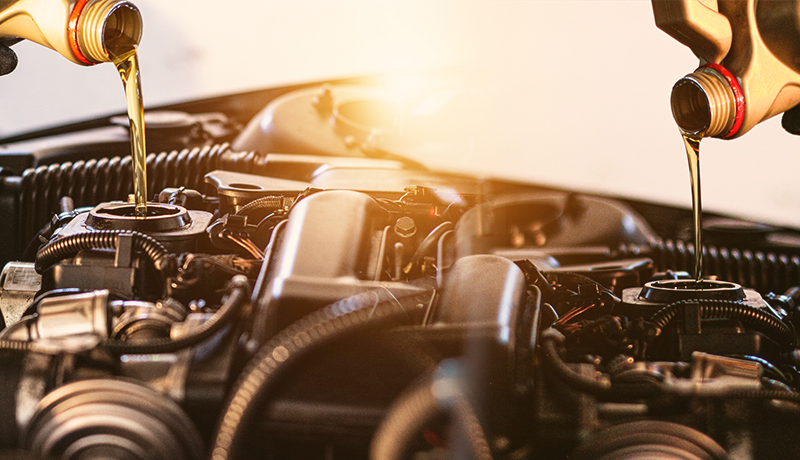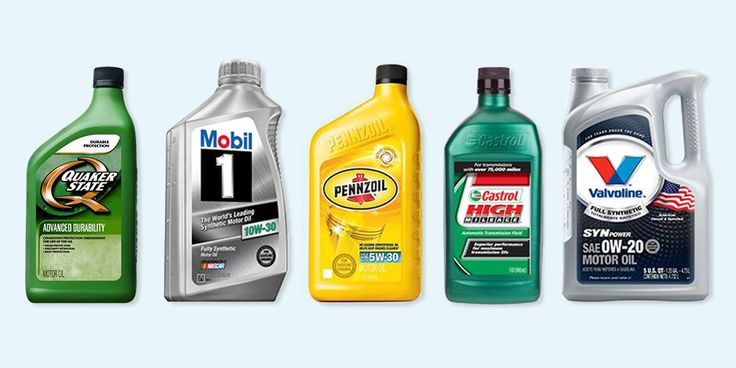Conventional, synthetic, or high mileage oil…, what type of oil does my car take? There are so many kinds of engine oils on the automobile market today, and picking up the right engine oil for your vehicle can be confusing. If you have the same concern, you are in the right place. The article will break down the different types of motor oil to help you decide what exact oil your car engine needs.
Contents
What Type of Oil Does My Car Take?
Motor oil helps maintain the operation of the engine system through lubrication, reducing friction, and cleaning mechanical parts such as pistons, cylinders, or crankshafts to enhance engine protection and minimize wear and tear. Because the engine’s fuel combustion process can form soot, dirt, etc. They are stored in the oil to ensure it does not impact the metal parts. Now you already know what does engine oil do and its importance.
However, with countless oil options, choosing the right one can feel like navigating rush hour traffic. What kind of oil does my car take? To answer this question first, you need to know how many types of engine oils are lining the shelves right now:
Types of engine oil

Conventional oil
Conventional oil also known as mineral oil, is the most basic engine oil as it uses the most rudimentary refining process of crude oil. It is a cost-effective solution for engine lubrication and protection. However, this type of oil is broken down faster hence you must change the oil at regular intervals for optimum engine performance.
Full synthetic oil
It’s chemically engineered in labs and produced in factories. Synthetic oil includes special additives that ensure performance at the extreme ends of the temperature spectrum and limit the accumulation of residue and wear of engine parts. This type of oil needs to be changed at a longer interval but costs more upfront.
>> Related post: How Long Does Synthetic Oil Last?
Synthetic blends oil
This is the type of oil that most car owners use for every oil change. The oil is a blend of mineral oil and synthetic oil. It doesn’t break down or oxidize as easily as mineral oil and at the same time, semi-synthetic oil doesn’t cost as much as synthetic oil. Usually, this type of oil is known through brands such as Castrol, Mobil, Shell…, and trusted by many people.
High-mileage engine oil
High-mileage engines have different needs for their oil. A vehicle with over 75000 miles can develop conditions that require special lubricants and the high-mileage oil was developed for these reasons. Older engines can have ring wear deposits and leaks, these conditions can be all improved by an engine oil with a special formulation. High-mileage engine oils include additive packages that assist in removing deposits from valves and rings. This oil also contains a seal conditioner to help them stay pliable and able to continue their work sealing the engine against the leakage.
Choose the right oil: Factors to consider
To pick the best oil for cars, in addition to consulting the vehicle manufacturer’s recommendations, you can also rely on the following factors:
SAE
The viscosity grade determined by the Society of Automotive Engineers (SAE) indicates the thickness of the lubricant. For example, engine oils with multi-grade viscosity are often denoted as SAE 10W-30, 15W-40, and 20W-50. The letter “W-” indicates the temperature range at which the oil helps the engine start well. The number after “W-” represents the thickness of the oil, with the larger the number, the thicker the oil. Each type of vehicle needs to have the appropriate SAE viscosity level to ensure optimal operation and durability in all climatic conditions.
API
API (American Petroleum Institute) is used for evaluating lubricant quality, and it is very important to distinguish lubricants for gasoline and diesel engines. Quality levels of gasoline engine oils are denoted from API SA, SB, SC,… to the latest level today, API SN Plus. Each final letter represents a quality grade, and the higher the grade, the better the oil quality. For example, API SN is higher than API SM, and SM is higher than API SL. For diesel engine lubricants, quality levels are divided into levels from API CA to API CD.

Car mileage
Newer cars with lower mileage can benefit from conventional oil, due to its tighter tolerances within the engine. However, if your car reaches a certain mileage (such as 75000 miles), you should switch from conventional oil to a high-mileage or synthetic oil to protect your engine. For example, 10W-40 (higher numbers on the viscosity grade) can be a better choice for older engines which are prone to burning or oil leaks. Some best high-mileage engine oils you can consider buying such as:
- Royal Purple 11748 HMX SA
- Valvoline High Mileage Motor Oil.
- Mobil 1 Full Synthetic Oil
…
Driving conditions
If you live in extremely hot or cold weather, synthetic or semi-synthetic oils might be a better choice due to their wider temperature range performance. Stop-and-go city traffic also puts more stress on the engine, so consider a higher-quality oil like a synthetic blend.
Last but not least, always refer to your car’s owner’s manual for the recommended oil type and viscosity grade (thickness).
>> Read more: The Difference Between Synthetic Oil and Conventional Oil
What Happens If You Put The Wrong Oil In Your Car?
You accidentally put the wrong type of oil in your vehicle. Did you cause irreparable damage to your vehicle? Poor engine performance, oil leaks, and burning smells… are the symptoms that can happen to your car when using the wrong oil in the engine.
Poor engine performance
Using oil that is too thick can significantly reduce engine performance. The reason is that then, the engine components will have a harder time moving even though they are lubricated.
When using the wrong type of engine oil, you can still drive as normal. However, it is recommended that you do not let this situation last for a long time to avoid engine damage.
Burning smells
Just like other parts of the car, engine oils also have a certain lifespan. If you use the wrong type of oil, the oil will degrade very quickly and even burn when friction increases and can no longer protect the engine.
Oil leak
Another sign of using the wrong engine oil is an oil leak. Although oil leaks do not cause serious damage, if this situation is not corrected promptly, your vehicle will lose a large amount of lubricant. Oil leaks are one of the most obvious signs when you choose the wrong type of oil.
Manufacturers design the engine for a certain viscosity oil to get the best performance, we recommend always using the types of engine oil that are recommended by auto manufacturers.
Watch more:
There you have it! Armed with this knowledge and a quick peek at your owner’s manual, you’ll be ready to choose the perfect oil to keep your car’s engine in good condition. Happy motoring!



